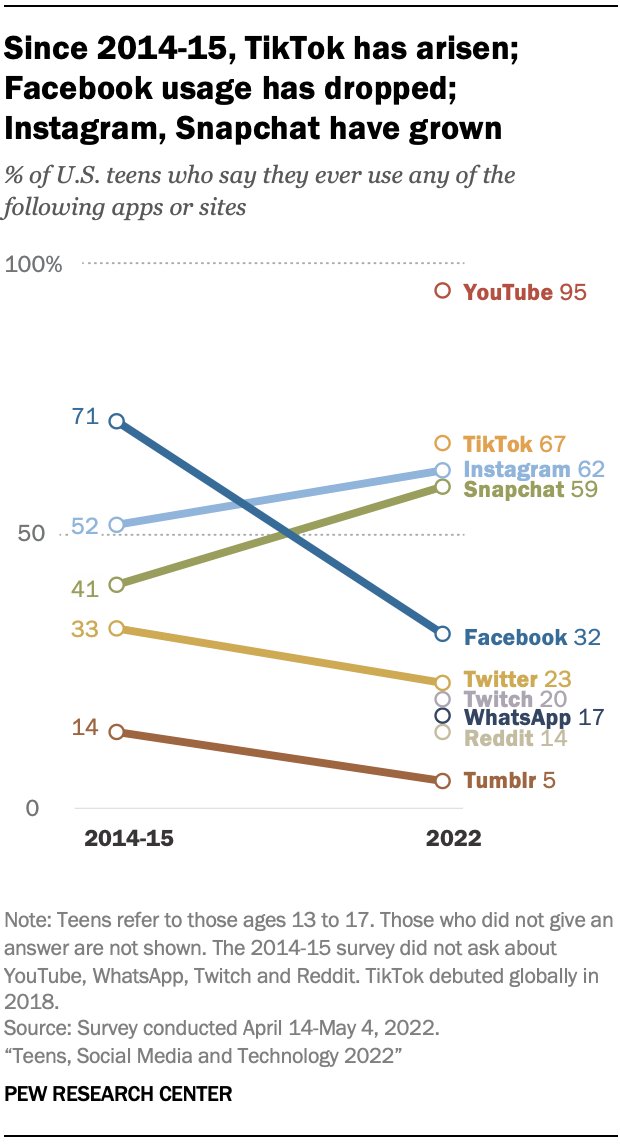Search results for briefly (337)
July 20, 2023
- Substack counts as the media, right? David Farrier, a NZ journalist and filmmaker, wrote about getting a spine MRI.
- Aspartame is now in Group IIb on the International Agency for Cancer Research scale of hazards. We had reports from at least the Herald, Stuff, 1News, RNZ. It’s important to remember that IIb, “possible carcinogen” is effectively the lowest on a three-point scale. IARC has Group I (definitely carcinogenic at some dose), Group IIb (probably carcinogenic at some dose), and Group IIb (possibly carcinogenic at some dose). They also have Group III (insufficient evidence). They once had Group IV (not carcinogenic) but it only ever got used once and was retired. The “at some dose” proviso is also important; for example, sunlight is a Group I carcinogen. The reports were all pretty good — much better than when bacon got into Group I several years ago. Perhaps the best was at Stuff, where they actually quoted the recommended dose limit: David Spiegelhalter, an emeritus statistics professor at Cambridge University, said the guidance means that “average people are safe to drink up to 14 cans of diet drink a day … and even this ‘acceptable daily limit’ has a large built-in safety factor.” That’s safe for cancer, not for all possible problems, but it’s still a lot. I’d also link to the Twitter thread by Martyn Plummer, a statistician and former IARC researcher, but linking to Twitter threads now doesn’t work because of the War on Twitter.
- Katie Kenny at Stuff had an excellent story about measurement accuracy and her infant son’s weight.
- Mediawatch writes about one weird trick for getting your press releases covered in the news (be sure always to call it research)
June 7, 2023
- Michael Neilson and Chris Knox at the NZ$ Herald have an excellent look at crime statistics and what you can’t straightforwardly conclude from them
- Outsourcing: there was a story about garlic to stop Covid. Here are responses from a blog at the University of Waikato, and from misinformation.wiki
- Many French labour regulations start to apply when you have 50 employees, says the Economist, showing the graph on the right that has a big drop in the number of businesses reporting 50 or more employees
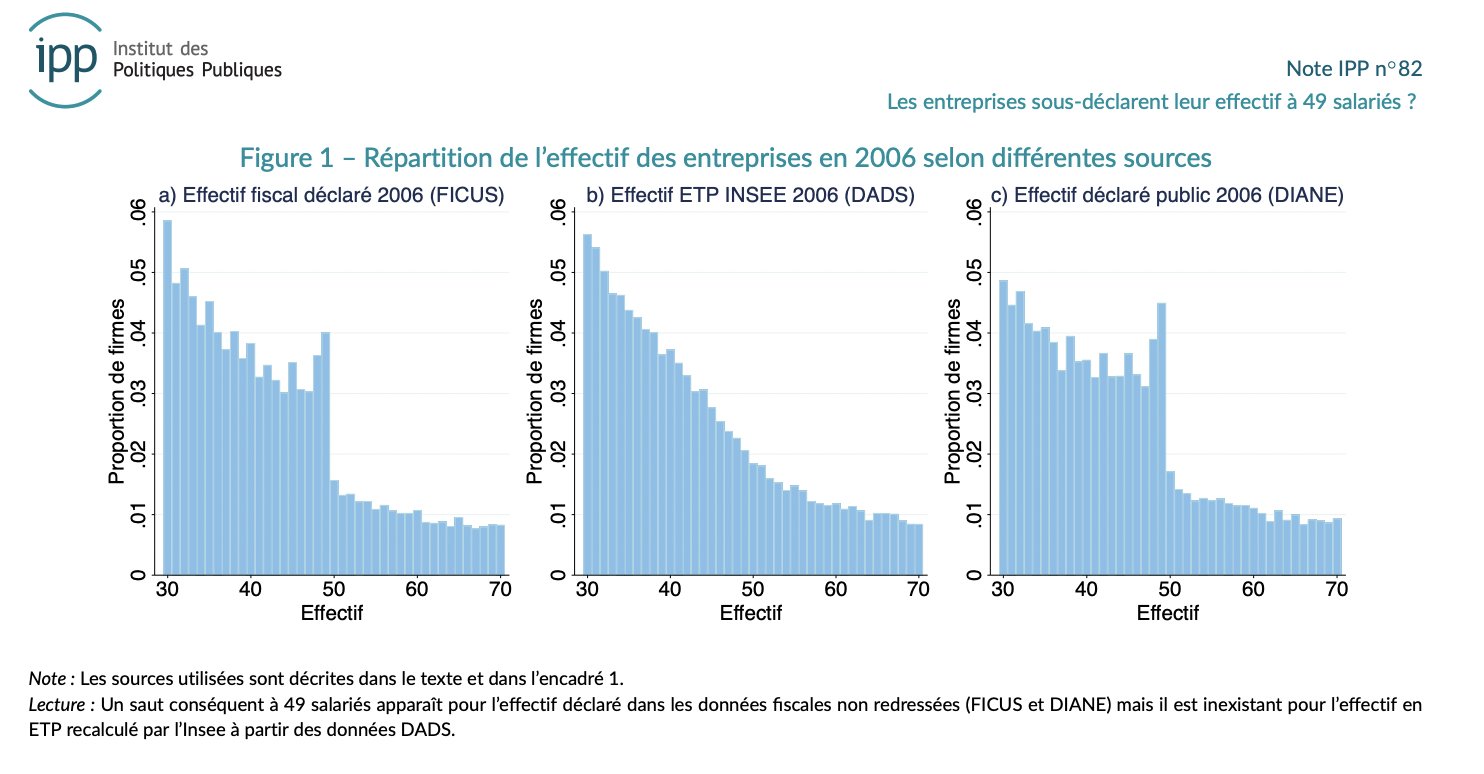
The graph on the left shows the same self-reporting from a different source. The graph in the middle shows actual numbers of employees estimated using payroll data, with nothing happening at 50 — an interesting difference (from)
April 13, 2023
- How to win at roulette. No, they haven’t repealed the martingale optional stopping theorem, but no mathematical model is a perfect description of reality
- Farah Hancock has a good series of reports about Auckland and Wellington buses, for Radio NZ.
- “At the outset, it’s important to note that the finding that “exercise is better than medicine” for depression is one that you cannot possibly make from this paper, because the authors *literally excluded papers that compared exercise to medication*” — a Twitter thread on claims about a new study
- Riding an electric bike drops heart and cancer risks, finds German study. Except it doesn’t. The published German study compares exercise levels and accident rates of a group of people riding electric and acoustic bikes. That’s all it does. Unsurprisingly, it finds that the e-bikers still get exercise, but not quite as much as the people using traditional bicycles. There’s a lot of claims of evidence of major health effects, that the researchers are supposed to have described to Der Spiegel (I don’t subscribe, so I can’t check). These are (a) unpublished, and (b) can’t be as described — the study included about 2000 reasonably healthy participants and ran for twelve months, so it can’t possibly have collected substantial evidence about prevention of cancer or Alzheimer’s or heart disease. That’s before we even get to any issues about confounding: how much does your health affect cycling vs cycling affecting your health. As a long-term e-cyclist, I’d love these claims to be based on convincing evidence, but they just aren’t.
- Via David Rumsey on Twitter, the first ‘flow’ visualisation maps, from the 1838 Irish Railway Commission Atlas
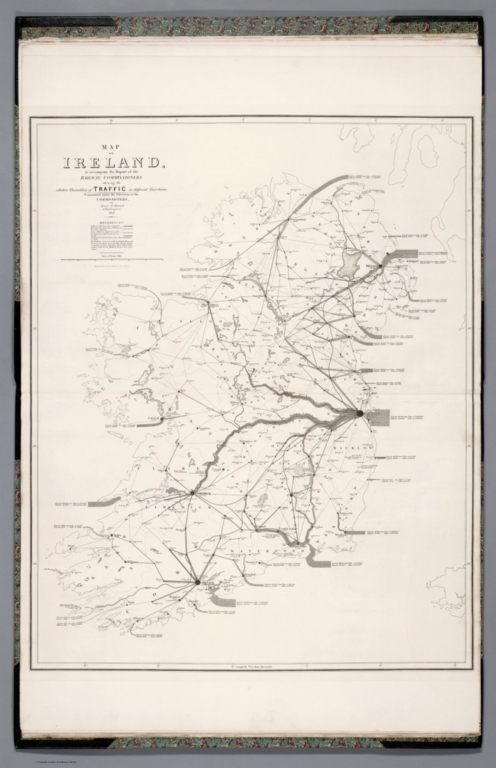
- From Kieran Healy, the relationship between height and number of points scored in the US professional basketball league. No, there isn’t a visually clear relationship. That’s because you’re selecting everyone for being very good at basketball, and the shorter guys need to be better in other ways to compensate. Height obviously matters; other things matter too. In the same ways, using some sort of standardised test as a criterion for university admission will make it look as if the test isn’t related to performance at university.
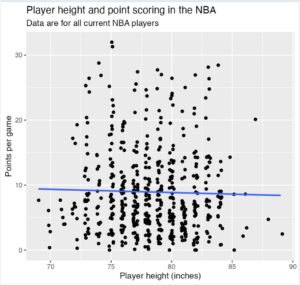
January 9, 2023
- “We were able to put together a relatively good data set of case numbers for all states, but we were explicitly forbidden to make the data publicly available, even though our data was more accurate than what was appearing in the media.” Rob Hyndman, quoted by the ABC
- Yet another example that counting isn’t simply neutral, from the Wikipedia entry for the Bechdel Test, via depths of wikipedia: “What counts as a character or as a conversation is not defined. For example, the Sir Mix-a-Lot song “Baby Got Back” has been described as passing the Bechdel test, because it begins with a valley girl saying to another “oh my god, Becky, look at her butt”.
- From the Washington Post: is your name more common for dogs or people? (in the US, of course)
- From the New York Times, estimated carbon emissions by neighbourhood across the USA.
- From David Hood, using the Ministry of Health public data, our holiday Covid wave. Something different seems to have happened in Tarāwhiti, and it seems to have happened at roughly the same time as the Rhythm’N’Vines festival

January 1, 2023
- The “Great Kiwi Christmas Survey” led to stories at Herald, Newshub, Farmers Weekly, and Radio NZ on what people were eating for their Christmas meal. The respondents for the “Great Kiwi Christmas Survey” were variously described as “over 1000”, “over 1800”, and “over 3300” Kiwis, which seems a bit vague. According to newsroom, this was actually a bogus poll: “We promoted the survey through social media channels and sent the survey to those people who had signed up to receive information from us,” concedes Lisa Moloney, the promotions manager for Retail Meat NZ and Beef + Lamb NZ. Headlines based on bogus polls aren’t ever ok — even when you don’t think the facts really matter. Newsroom argued that the results under-represented vegetarians, which is plausible, but you can’t really tell from the data presented on the number of vegetarians. Not all Christmas meals at which vegetarians are present will be centred around plant-based food, as any vegetarian can tell you.
- Stuff, with the help of Auckland Transport, wrote about Auckland’s most prolific public transport user. Apparently, someone took 3400 trips over a year. It’s surprising that’s even possible: nearly ten trips per day, every day, and since the person is doing this on a gold card, starting no earlier than 9am on weekdays. Assuming the numbers are correct — actually, whether the numbers are correct or not — it’s also a bit disturbing that this analysis was done. The summaries of typical and top 100 users seem a lot more reasonable. The piece says “Stuff asked to interview the person, however Auckland Transport would not reveal their identity for privacy reasons.”, which is good, but you might want them not to be in a position to reveal it.
- “Support for low-income housing followed a similar pattern, with broad approval for building it someplace in the country (82 percent) but much less for building it locally (65 percent)” at 538. There should be a word for this.
- Interesting discussion on the Slate Money podcast about a data display, the “Fed Dot Plot”, which shows the best guesses of members of the Federal Reserve Open Market Committee as to what interest rates they will want in the future; each dot is one person. The Fed is trying to de-emphasise this graph at the moment — partly because people tend to over-interpret it. Importantly, there’s no individual uncertainty shown, and there’s no way to tell how much of the difference between people is due to difference in what they think the economic situation will be and how much is due to differences in how they expect they will want to react to it.
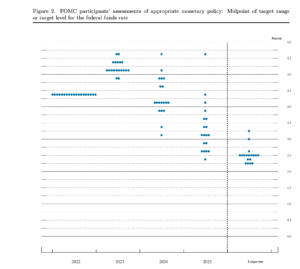
December 6, 2022
- I’ve often complained about misleading bar graphs in reporting electoral opinion polls. 1News just punted on the whole issue with this:
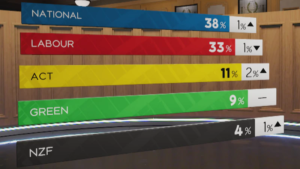
- The cost of the Meola Road rebuild, $47.5 million, has been inaccurately portrayed as the cost of the bike lane that’s a minor component of it. Twitter user @ArcCyclist got the actual breakdown from the Council:
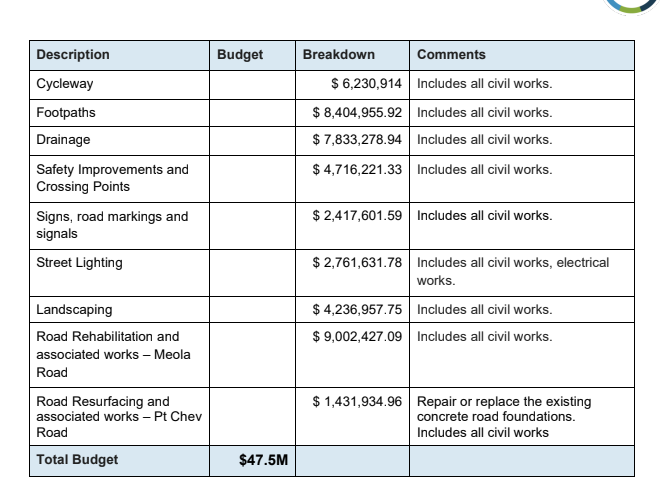
While I’m at it, I do want to note one way it’s a bad table: the cycleway number is given to whole dollars, with everything else given in cents, so it looks even smaller than it really is. You usually don’t want to delete trailing zeroes in a table.
- The ESR Covid wastewater dashboard is now at poops.nz. Yes, really.
- There’s a new “technical report for future UK Chief Medical Officers, Government Chief Scientific Advisers, National Medical Directors and public health leaders in a pandemic” from the UK. Even if you aren’t among that exalted company, some of the information may be useful to public citizens as well
- The Ministry of Health is seeking public comment on something it wrote about ‘precision health’. There might be StatsChat readers who have reckons.
- Eric Crampton notes that cost-benefit ratios for transport projects are defined in an idiosyncratic way that makes them hard to compare either with each other or with non-transport projects.
- The first drug to convincingly delay Type I diabetes onset has been approved. The average benefit is about two years, and the treatment will be marketed at US$200,000. Cost-effectiveness research suggests this is way more than it’s worth for most people, even in the US where insulin for Type I diabetes is very expensive.
September 17, 2022
- From Radio NZ’s series on the lotto: “When contacted by RNZ, Lotto said it would now no longer claim that there were lucky stores. “We recently carried out a piece of work looking at the use of the word ‘luck’ in relation to our products and as a result of this work have decided we will not in the future put ‘lucky stores’ or ‘lucky regions’ in press releases,” head of corporate communications Lucy Fullarton said.”. As StatsChat readers will remember, we’ve been attacking this use of “lucky” for a while.
- On the other hand, Lotto doesn’t need to specifically make these claims any more, since they’re already well known. For example, see today’s Herald, “Kiwis are rushing into lucky Lotto stores ahead of tonight’s $20 million jackpot draw”, naming the same Hastings pharmacy as the Radio NZ story did.
- Good article by Jamie Morton in the Herald on interesting clinical trials in New Zealand.
- The UK Office of National Statistics has a life expectancy calculator — if, to pick an example almost at random, you wanted to find out how long a 73-year old man would be expected to live
- There’s a claim out there that the median book only sells twelve copies. As you’d expect, it’s more complicated than that
August 5, 2022
- There’s a new version of ESR’s Wastewater Covid dashboard. It has information on which variants are being found, by location and over time
- Hashigo Zake, the Wellington craft beer bar, has a new Twitter bot tweeting out the CO2 concentration inside the bar. I summarised a couple of days of it:

- How far can you go by train in 5 hours? A map of Europe
- How likely are people to win the lottery: the Washington Post did a quiz
- Jamie Morton in the Herald has a good discussion of the Stats NZ review of the population denominator used in Covid vaccine stats. The HSU undercounts somewhat, especially for Māori and Pacific Peoples, but it has the virtue of counting ethnicity the same way that the vaccination data does, and of including people in NZ who are not residents.
July 26, 2022
- Derek Lowe writes “Late last week came this report in Science about doctored images in a series of very influential papers on amyloid and Alzheimer’s disease. That’s attracted a lot of interest, as well it should, and as a longtime observer of the field (and onetime researcher in it), I wanted to offer my own opinions on the controversy.” As he says, the interest in amyloid is not just (or primarily) driven by the allegedly fraudulent research. There’s a lot of support for the importance of beta-amyloid from genetics: mutations that cause early-onset Alzheimer’s, and perhaps even more convincingly, a mutation found in Icelanders that protects against Alzheimers. The alleged fraud is bad, as is the current complete failure of research into treatments, but the link between the two isn’t as strong as some people are implying.
- Prof Casey Fiesler, who teaches in the area of tech ethics and governance, is developing a TikTok-based tech ethics and privacy course
- ESR’s Covid wastewater dashboard is live. This is important because Everyone Poops. We don’t have an exact conversion from measured viruses to active cases, and the conversion could vary with the strain of Covid and with age of the patients, but at least it won’t depend on who decides to get tested and report their test results.
- The wastewater data will be an excellent complement for the prevalence survey that the Ministry of Health is starting up. The survey, assuming that a reasonable fraction of people go along with getting tested, will give a direct estimate of the true population infection rate, but it will not be as detailed as the wastewater data, which can give estimates for relatively small areas and short time frames.
- Briefing on the Data and Statistics Bill from the NZ Council of Civil Liberties. If you follow StatsChat you’ve seen these points before. And you will see them again.







